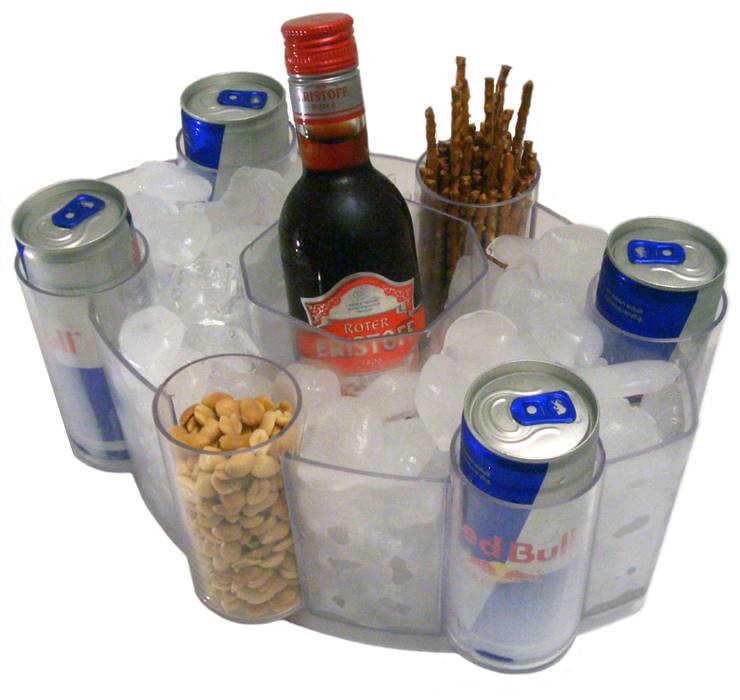Caffeine Content of Red Bull
Red Bull is one of the most popular energy drinks in the world. In 1987, it was launched first in Austria, in a carbonated format, and soon after in Singapore.
Today, it is distributed in more than 160 countries. It is estimated that around 4 billion cans of Red Bull are consumed world wide every year.
Red Bull's main ingredients are caffeine, taurine and sugar. The amount of caffeine in one 8 ounce (250ml) can be as high as 0.03%.
An 8.46 ounce can (250 ml) of Red Bull contains 80 mg of caffeine
As other energy drinks, Red Bull delivers mainly a jolt of caffeine and a high dose of calories. Each 8-ounce can of Red Bull has slightly less caffeine than a cup of coffee and more than twice as much as a 12-ounce can of Coke.

Red Bull claims that it improves performance, increases concentration, improves reaction speed and stimulates the metabolism.
Caffeine is known for its beneficial effects on physical and mental functions and because of that Red Bull can improve alertness, concentration and reaction speed. But caffeine in these drinks causes to temporal alertness and does not enrich the body with energy.
It is also know that caffeine mobilizes fat for use as energy, so energy drink is great choice if we are exercising and trying to reduce fat. But remember, the best way to lose fat is to decrease calories consumed and increase physical activity.
The actual caffeine level in this drink can vary depending on country, because some countries have legal restrictions on how much caffeine is allowed in energy drinks.
For the average person, consumption of caffeine in amounts less than 300 mg per day is considered a safe amount to consume.
But, because combination with other ingredients (sugar, taurine etc.) recommended limits of Red Bull is about 2 cans per day.
Red Bull ingredients:
Water, Glucose, Sucrose, Acidifier Sodium Citrates, Carbon Dioxide, Caffeine (0.03%), Taurine (0.4%), Glucuronolactone (0.24%), Inositol, Vitamins (B12, Niacin, Pantothenic Acid, B6,), Flavourings, Colours (Riboflavin, Caramel) and Sugar (27 g per 250 ml).
Sugar-free Red Bull contains phenylalanine.
For comparison:
Caffeine content of other energy drinks (per 250ml or 8.45 fl oz) :
Impulse contains 80 mg of caffeine
Monster contains 80 mg of caffeine
Burn contains 80 mg of caffeine
Redline contains 125 mg of caffeine
Full Throttle contains 75 mg of caffeine
Rockstar contains 80 - 160 mg of caffeine
Blue Charge contains 300 mg of caffeine
Boo Koo contains 360 mg of caffeine
An 8-ounce cup of regular coffee typically has 80 to 150 milligrams of caffeine.
Soft drinks have around 55 mg of caffeine.
The amount of caffeine and sugar present in Red Bull is known to cause a variety of adverse health effects. Commonly reported adverse effects are insomnia, nervousness, headache, tachycardia etc.
It is not recommended that children use this drinks. Even young people should be careful, too.
Red Bull is safe in moderate quantities.
Note: All figures are approximate, this site does not provide medical advice, diagnosis or treatment.
